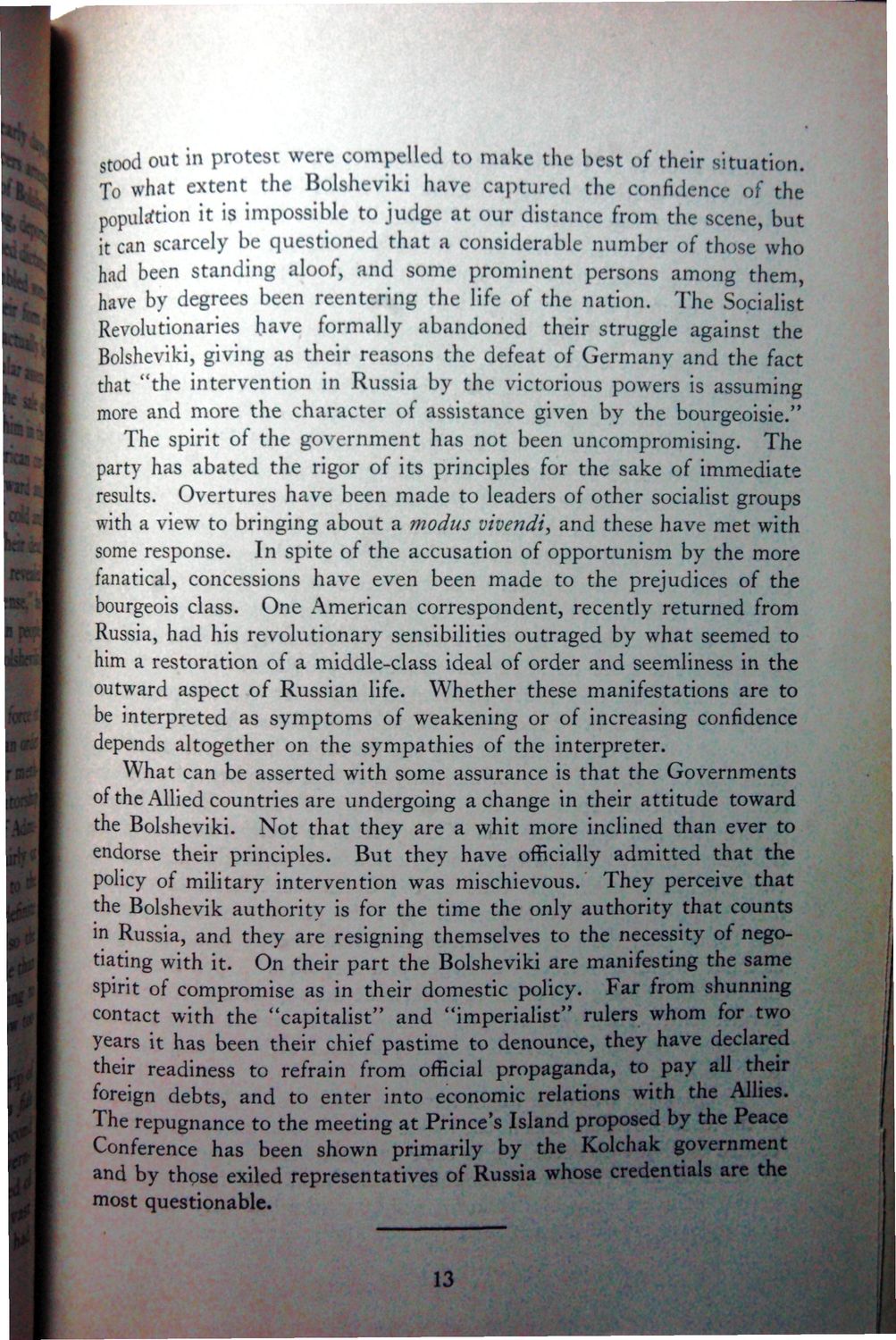| |
| |
Caption: War Publications - WWI Compilation 1923 - Article 22
This is a reduced-resolution page image for fast online browsing.

EXTRACTED TEXT FROM PAGE:
stood out in protest were compelled to make the best of their situation. To what extent the Bolsheviki have captured the confidence of the population it is impossible to judge at our distance from the scene, but it can scarcely be questioned that a considerable number of those who had been standing aloof, and some prominent persons among them, have by degrees been reentering the life of the nation. The Socialist Revolutionaries have formally abandoned their struggle against the Bolsheviki, giving as their reasons the defeat of Germany and the fact that "the intervention in Russia by the victorious powers is assuming more and more the character of assistance given by the bourgeoisie." The spirit of the government has not been uncompromising. The party has abated the rigor of its principles for the sake of immediate results. Overtures have been made to leaders of other socialist groups with a view to bringing about a modus vivendi> and these have met with some response. In spite of the accusation of opportunism by the more fanatical, concessions have even been made to the prejudices of the bourgeois class. One American correspondent, recently returned from Russia, had his revolutionary sensibilities outraged by what seemed to him a restoration of a middle-class ideal of order and seemliness in the outward aspect of Russian life. Whether these manifestations are to be interpreted as symptoms of weakening or of increasing confidence depends altogether on the sympathies of the interpreter. What can be asserted with some assurance is that the Governments of the Allied countries are undergoing a change in their attitude toward the Bolsheviki. Not that they are a whit more inclined than ever to endorse their principles. But they have officially admitted that the policy of military intervention was mischievous. They perceive that the Bolshevik authority is for the time the only authority that counts in Russia, and they are resigning themselves to the necessity of negotiating with it. On their part the Bolsheviki are manifesting the same spirit of compromise as in their domestic policy. Far from shunning contact with the "capitalist" and "imperialist" rulers whom for two years it has been their chief pastime to denounce, they have declared their readiness to refrain from official propaganda, to pay all their foreign debts, and to enter into economic relations with the Allies. The repugnance to the meeting at Prince's Island proposed by the Peace Conference has been shown primarily by the Kolchak government and by thpse exiled representatives of Russia whose credentials are the most questionable. 13
| |